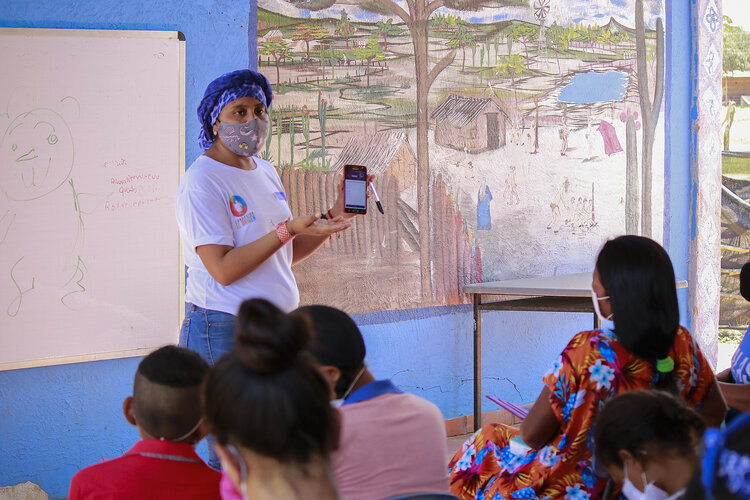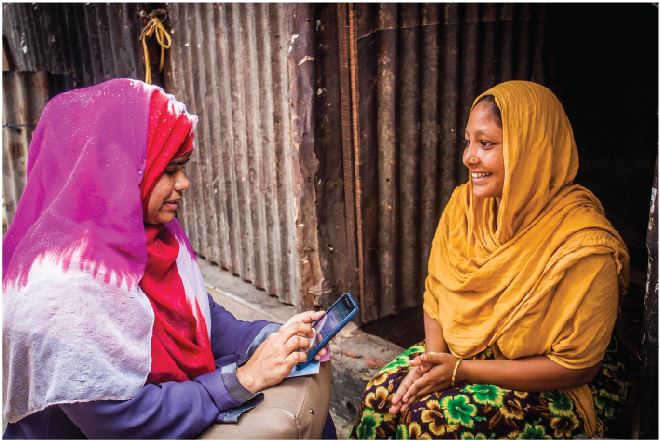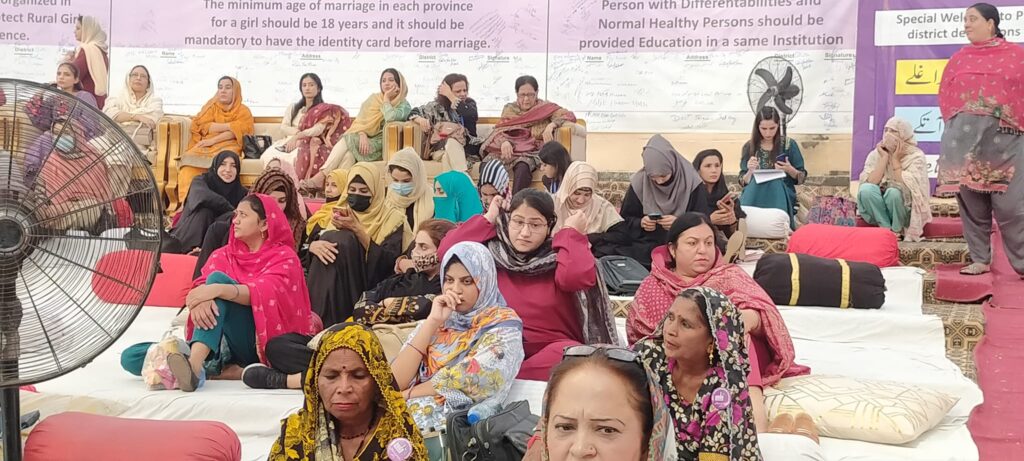
Empowering Rural Women: Bridging the Digital Divide
Introduction:
Access to technology and digital skills plays a pivotal role in today’s rapidly evolving world. While urban areas are thriving on the benefits of digital connectivity, rural areas, particularly in developing countries like Pakistan, are lagging behind. This essay will discuss “Empowering Rural Women: Bridging the Digital Divide,” a joint effort of Hamari Human Rights Welfare Society Pakistan and Global Development Network Pakistan. It aims to provide computer education to rural women in Pakistan, empowering them with valuable digital skills and fostering inclusivity and equality in society.
Understanding the Digital Divide:
The digital divide refers to the gap between individuals, communities, and societies that have access to modern information and communication technologies (ICTs) and those who do not. Rural areas in Pakistan often lack access to basic infrastructure, including electricity and internet connectivity, which limits individuals’ opportunities, particularly rural women, to acquire digital skills. Empowering rural women through computer education breaks down these barriers, allowing them to actively participate in the digital economy and enhance their livelihoods.
The Importance of Empowering Rural Women:
- Social Empowerment: Rural women, by nature of their gender and socio-economic status, face numerous obstacles in accessing educational and economic opportunities. Providing them with computer education equips them with the skills and knowledge needed to become self-reliant and active contributors to their communities. Empowered rural women are more likely to challenge social norms and advocate for gender equality, fostering positive change in their societies.
- Economic Empowerment: Digital skills empower rural women to create income-generating opportunities. With the ability to access digital platforms, they can engage in e-commerce, online marketplaces, and remote jobs. Empowering rural women economically not only reduces poverty but also strengthens their bargaining power within households and communities. The resulting economic independence leads to improved decision-making abilities and increased self-esteem.
- Education and Health: Access to digital tools enhances women’s access to educational resources, whether it be online courses, tutorials, or research material. Moreover, digital connectivity can facilitate telemedicine, enabling rural women to access healthcare facilities and advice remotely. Empowering rural women with digital skills improves their overall well-being, allowing them to make informed healthcare decisions for themselves and their families.

The Role of Hamari Human Rights Welfare Society Pakistan & Global Development Network Pakistan:
The partnership between Hamari Human Rights Welfare Society Pakistan and Global Development Network Pakistan aims to bridge the digital divide by providing computer education to rural women in Pakistan. Here are the key components of this joint effort:
- Infrastructure Development: The initiative targets the establishment of computer labs in rural areas, equipped with necessary hardware, software, and internet connectivity. Overcoming infrastructure challenges is a crucial step in ensuring rural women’s access to digital resources.
- Skill-Building Programs: The program offers comprehensive computer education courses tailored to the needs of rural women. These courses cover basic digital literacy, word processing, internet usage, e-mailing, and other essential skills. Qualified trainers and mentors facilitate these programs, ensuring effective learning outcomes.
- Entrepreneurship and E-commerce Training: Alongside computer literacy, the initiative provides training in entrepreneurship and e-commerce. It equips rural women with the skills to set up and manage online businesses, enhancing their chances of economic success and financial independence.
- Community Engagement and Advocacy: The joint effort recognizes the importance of community engagement to foster lasting change. It encourages community involvement in the initiative through awareness campaigns, workshops, and partnerships with local organizations. By advocating for gender equality and digital inclusion, Hamari Human Rights Welfare Society Pakistan and Global Development Network Pakistan aim to create an environment conducive to the empowerment of rural women.

Call to Action:
To achieve the objective of empowering rural women through computer education in Pakistan, financial support from donors and other stakeholders is indispensable. Generous contributions will help overcome barriers such as infrastructure challenges, purchase necessary equipment, recruit qualified trainers, and expand the outreach of the program. By empowering rural women with digital skills, we collectively contribute to building a more inclusive and equal society in Pakistan.
Conclusion:
Empowering rural women through computer education is a critical step toward bridging the digital divide in Pakistan. The joint effort of Hamari Human Rights Welfare Society Pakistan and Global Development Network Pakistan seeks to break down barriers and empower rural women with valuable digital skills. By providing access to education, empowering them economically, and improving their overall well-being, this initiative lays the foundation for a more inclusive and equal society. Through financial support from donors and stakeholders, we can enable rural women to participate actively in the digital economy, creating a brighter future for them and their communities.
All Categories
- Agricultural Methods
- Agriculture and Women Small Farmers Rights Awareness
- Climate Change
- Disable and Human Rights
- Disable Jobs
- Donation
- Education
- Health Issues
- Organic Foods
- Organic Vegetables
- Orphans Children
- Plastic production and disposal
- Services
- Sinking in Scarcity
- Success Stories
- Uncategorized
- Waste Management
- Women Rights
- Youth Empowerment




